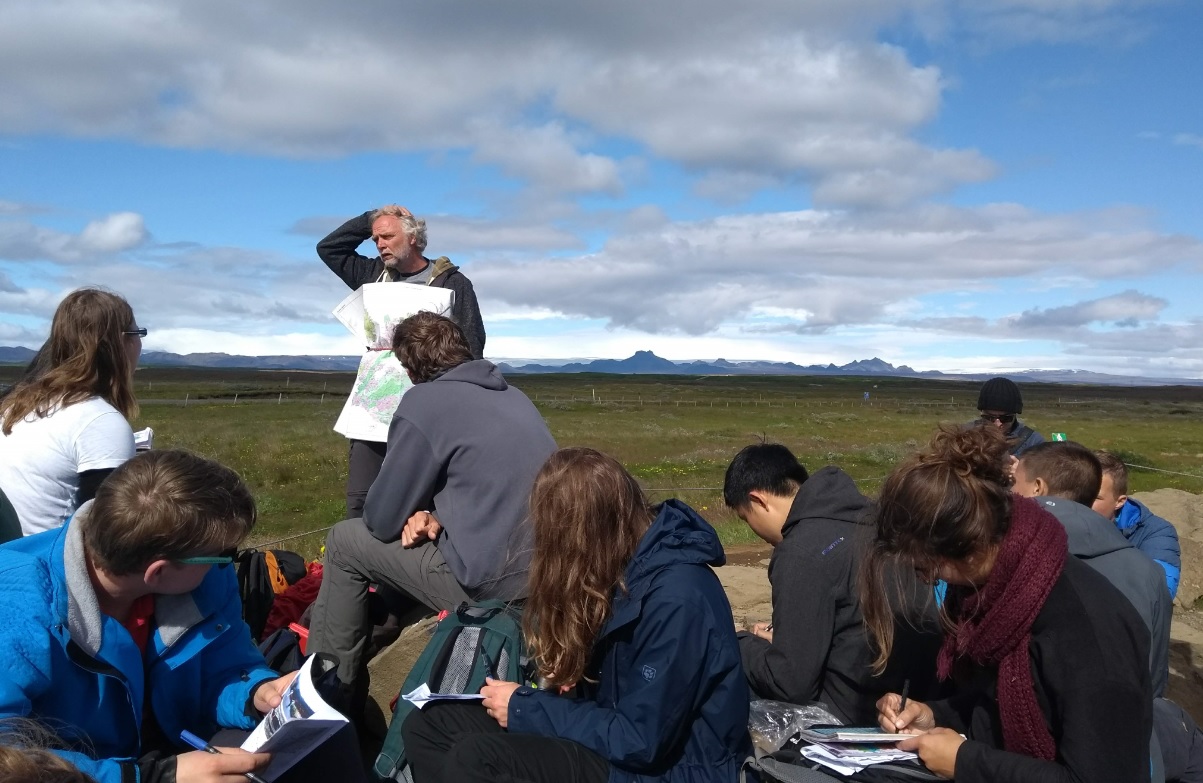On Thursday, teacher of Hydrology and Quantitative Water Management Roel Dijksma will be catching a plane to Iceland, together with two fellow teachers (Ryan Teuling and Lieke Melsen), a camerawoman (Berber Hania) and a photographer (Joris Schaap). But without the 63 students on the Master’s course Catchment and climate hydrology, who normally make up the majority of the participants in the field trip.
There is no other option: the risks are too great. ‘In Reykjavik they test everyone arriving by plane. Imagine if one of us has coronavirus, then the whole group has to go into quarantine for two weeks. You just shouldn’t do it,’ says Dijksma. ‘What is more, you can’t keep one and a half metres apart in the minibuses we use. It’s just impossible. And anyway, WUR has forbidden it.’
Field experience
But cancelling the field trip is not an option either. Dijksma considers the practical experience it provides essential. ‘This is the field experience in which students can connect theory and modelling with a landscape. They learn in the field how the theory works for a complex watershed like the one in Iceland. We mustn’t produce a lost generation of graduates that haven’t had this field experience.’
We mustn’t produce a lost generation of graduates that haven’t had this field experience
Roel Dijksma, lecturer in Hydrology and Quantitative Water Management
Nor is it an option to postpone the trip. Without their credit for this course, some of the students can’t graduate in September. ‘This is actually a course from period five,’ explains Dijksma. ‘We do the theory then. But the field trip always takes place in August because in May a lot of the places we want to go to are inaccessible due to snow and ice.’

As a dedicated teacher – Dijksma was Teacher of the Year in 2016 – he finds the whole situation hard to swallow. Dijksma has been running this field trip for 13 years, and doing it without the students takes most of the fun out of it. ‘I have never felt as little enthusiasm for going to Iceland as I do now.’ He will miss the real teaching. ‘Explaining things, the 30,000 questions you get, and the interaction with students.’
Bright side
But, looking on the bright side, such a small group can go to places they couldn’t normally go to, which generates some teaching material they wouldn’t otherwise have. And some of the students might still be able to go on the field trip in person next year. Dijksma is working on planning an extra trip for a small group, ‘for students who want to do their thesis in this subject area.’

 Roel Dijksma teaching students on Iceland. Not this year, though. Photo: Roel Dijksma
Roel Dijksma teaching students on Iceland. Not this year, though. Photo: Roel Dijksma